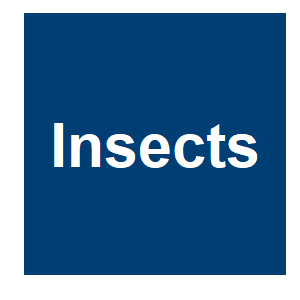
Keywords: hybridization

|
Wolbachia Infection through Hybridization to Enhance an Incompatible Insect Technique-Based Suppression of Aedes albopictus in Eastern SpainCholvi M, Trelis M, Bueno-Marí R, Khoubbane M, Gil R, Marcilla A, Moretti R., Insects, 15. 2024.
Wolbachia bacteria occur naturally as symbionts of many insect species and are responsible for various phenomena that modify the hosts’ reproductive biology. Among them, cytoplasmic incompatibility (CI) refers to the sterility of eggs produced by crosses between infected males ... Keywords: Evolution, genetic background, genetic biocontrol, Genetic pest management, hybridization, Population genetics, SIT, sterile insect technique, synthetic gene drive, wolbachia |

|
Assessing the hybridization potential between a hypothetical gene drive-modified Drosophila suzukii strain and non-target Drosophila speciesJ. Romeis, S. Wolf, J. Collatz, J. Enkerli and F. Widmer, IOBC-WPRS Bulletin, 163:108. 2023.
Genetically engineered gene drives (GD) are a potentially powerful tool to control pest insects by population suppression or even elimination. Before living GD modified insects can be released into the environment, they must pass an environmental risk assessment (ERA). A key ... Keywords: Evolution, genetic background, genetic biocontrol, Genetic pest management, hybridization, Population genetics, SIT, sterile insect technique, synthetic gene drive, wolbachia |

|
Both male and female meiosis contribute to non-Mendelian inheritance of parental chromosomes in interspecific plant hybrids (Lolium x Festuca)J. Majka, M. Glombik, A. Dolezalova, J. Knerova, M. T. M. Ferreira, Z. Zwierzykowski, M. Duchoslav, B. Studer, J. Dolezel, J. Bartos and D. Kopecky, NEW PHYTOLOGIST, 2023.
Some interspecific plant hybrids show unequal transmission of chromosomes from parental genomes to the successive generations. It has been suggested that this is due to a differential behavior of parental chromosomes during meiosis. However, underlying mechanism is unknown. We ... Keywords: Evolution, genetic background, genetic biocontrol, Genetic pest management, hybridization, Population genetics, SIT, sterile insect technique, synthetic gene drive, wolbachia |

|
Genetic pest management and the background genetics of release strainsP. T. Leftwich, L. G. Spurgin, T. Harvey-Samuel, C. J. E. Thomas, L. C. Paladino, M. P. Edgington and L. Alphey, Philosophical Transactions of the Royal Society B: Biological Sciences, 376:20190805. 2020.
We discuss issues around strain selection and the potential consequences of such introgression. We conclude that such introgression is probably harmless in almost all circumstances, and could, in theory, provide specific additional benefits to the release programme. We outline ... Keywords: Evolution, genetic background, genetic biocontrol, Genetic pest management, hybridization, Population genetics, SIT, sterile insect technique, synthetic gene drive, wolbachia |
Keywords: hybridization

|
Wolbachia Infection through Hybridization to Enhance an Incompatible Insect Technique-Based Suppression of Aedes albopictus in Eastern SpainCholvi M, Trelis M, Bueno-Marí R, Khoubbane M, Gil R, Marcilla A, Moretti R., Insects, 15. 2024.
Wolbachia bacteria occur naturally as symbionts of many insect species and are responsible for various phenomena that modify the hosts’ reproductive biology. Among them, cytoplasmic incompatibility (CI) refers to the sterility of eggs produced by crosses between infected males ... Keywords: Evolution, genetic background, genetic biocontrol, Genetic pest management, hybridization, Population genetics, SIT, sterile insect technique, synthetic gene drive, wolbachia |

|
Assessing the hybridization potential between a hypothetical gene drive-modified Drosophila suzukii strain and non-target Drosophila speciesJ. Romeis, S. Wolf, J. Collatz, J. Enkerli and F. Widmer, IOBC-WPRS Bulletin, 163:108. 2023.
Genetically engineered gene drives (GD) are a potentially powerful tool to control pest insects by population suppression or even elimination. Before living GD modified insects can be released into the environment, they must pass an environmental risk assessment (ERA). A key ... Keywords: Evolution, genetic background, genetic biocontrol, Genetic pest management, hybridization, Population genetics, SIT, sterile insect technique, synthetic gene drive, wolbachia |

|
Both male and female meiosis contribute to non-Mendelian inheritance of parental chromosomes in interspecific plant hybrids (Lolium x Festuca)J. Majka, M. Glombik, A. Dolezalova, J. Knerova, M. T. M. Ferreira, Z. Zwierzykowski, M. Duchoslav, B. Studer, J. Dolezel, J. Bartos and D. Kopecky, NEW PHYTOLOGIST, 2023.
Some interspecific plant hybrids show unequal transmission of chromosomes from parental genomes to the successive generations. It has been suggested that this is due to a differential behavior of parental chromosomes during meiosis. However, underlying mechanism is unknown. We ... Keywords: Evolution, genetic background, genetic biocontrol, Genetic pest management, hybridization, Population genetics, SIT, sterile insect technique, synthetic gene drive, wolbachia |

|
Genetic pest management and the background genetics of release strainsP. T. Leftwich, L. G. Spurgin, T. Harvey-Samuel, C. J. E. Thomas, L. C. Paladino, M. P. Edgington and L. Alphey, Philosophical Transactions of the Royal Society B: Biological Sciences, 376:20190805. 2020.
We discuss issues around strain selection and the potential consequences of such introgression. We conclude that such introgression is probably harmless in almost all circumstances, and could, in theory, provide specific additional benefits to the release programme. We outline ... Keywords: Evolution, genetic background, genetic biocontrol, Genetic pest management, hybridization, Population genetics, SIT, sterile insect technique, synthetic gene drive, wolbachia |

Contact
David O’Brochta
Foundation for the
National Institutes of Health
geneconvenevi@fnih.org
RSS

